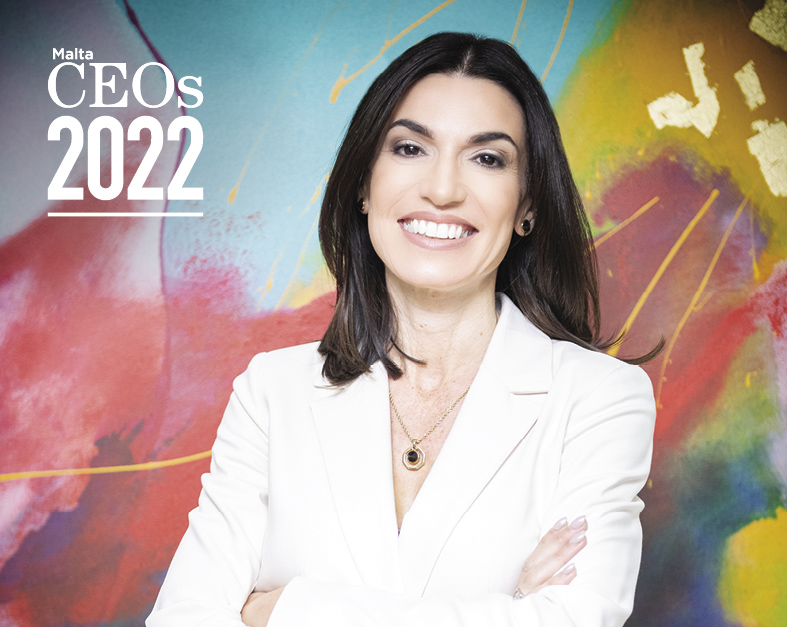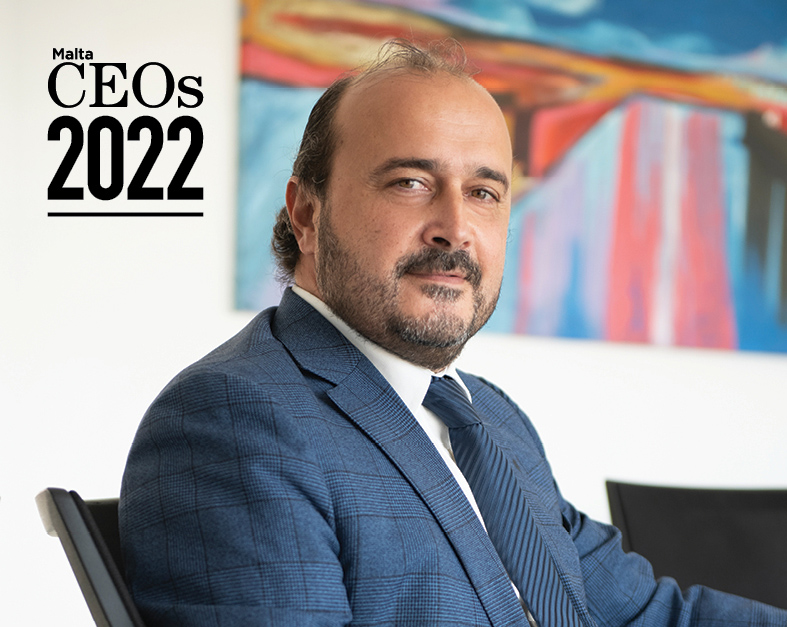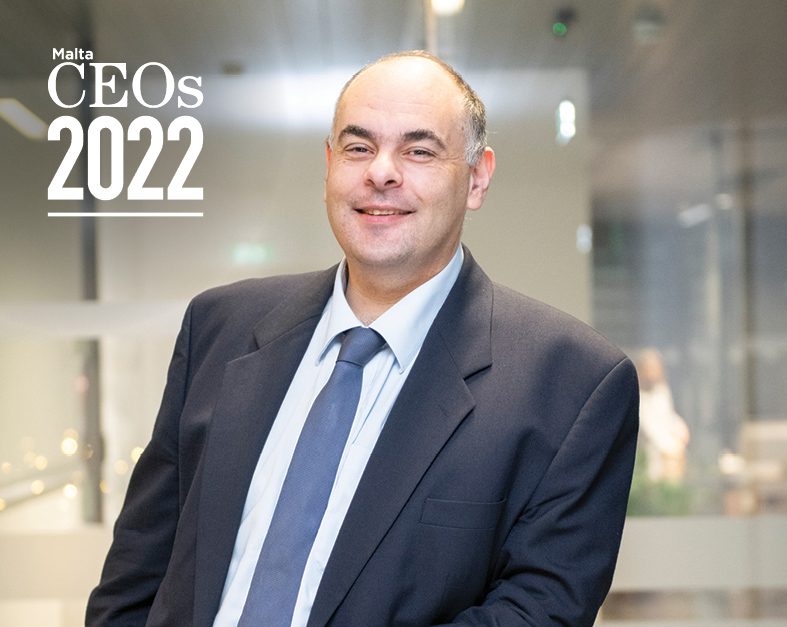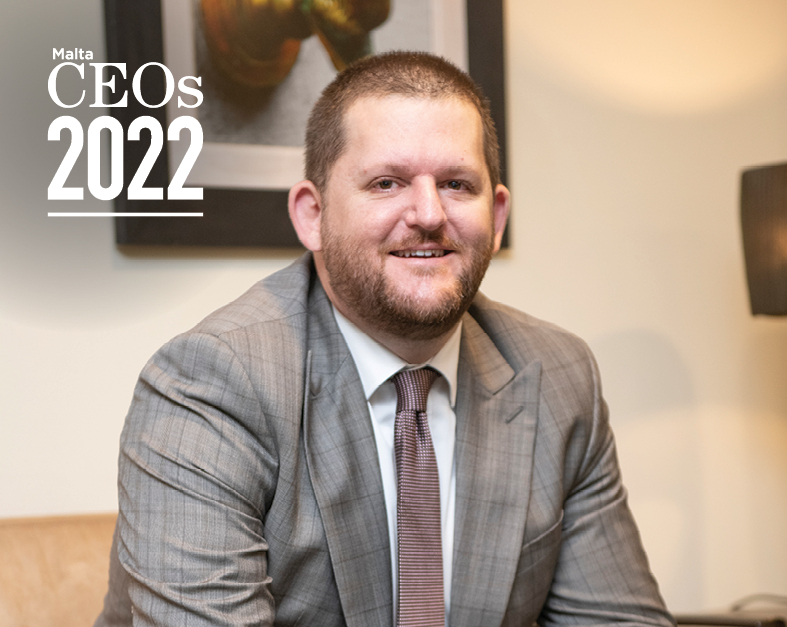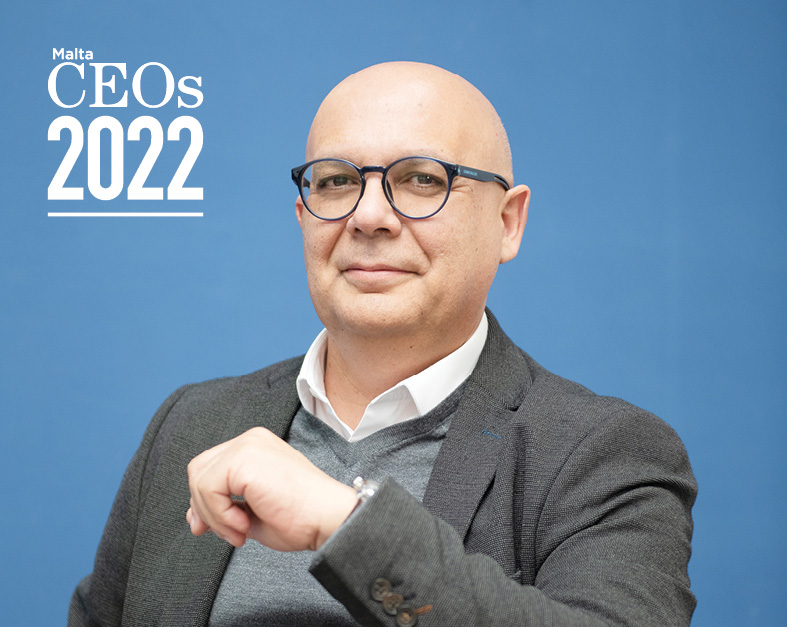Maria Cauchi Delia is the inimitable force behind Malta’s Institute of Accountants. As a full member body of Accountancy Europe and the International Federation of Accountants, the Institute is tasked with upholding and promoting the highest ethical and professional standards within the financial sector. With Malta’s recent greylisting at the forefront of everyone’s mind, the Institute’s voice is more essential than ever.
Born to two economists, Maria Cauchi Delia’s eventual propensity for finance may have seemed inevitable from the start. She insists, however, that her journey into the financial industry wasn’t always so clear cut. “When I was younger, I studied science and planned to go down the medical route. But, after realising that medicine wasn’t necessarily my calling, I decided to redirect my efforts to business and finance. And that’s ultimately what led me to where I am today.”

Throughout her career, Maria has occupied multiple roles within the private and public sectors, both locally and abroad. Now, she holds the esteemed position of CEO of The Malta Institute of Accountants (MIA). As the legally recognised professional accountancy body, the Institute aims to lead, train, promote, support, and educate its members (and the public) on the accounting profession.
Maria explains that “the Institute strives to promote the highest professional standards and governance within the accountancy profession by strongly supporting our members wherever we can. We do this by providing resources, guidance, liaising with stakeholders, and finding solutions to any problems that professional accountants may encounter in the execution of their duties. We also heavily invest in education through various developmental programmes and partnerships.”
As a successful, working mother of two, Maria is not easily deterred by obstacles – an attitude that she adopts in every aspect of her life. “Achieving balance is not an easy task but, while it can prove challenging, it is also energising. I have learnt to grant myself flexibility in everything I do, and prioritise being able to plan, while also allowing space to adapt and find alternative solutions.” Furthermore, Maria emphasises that any hurdles she has faced were ultimately part of her journey towards leadership and should be viewed as such. “What I am today is a culmination of all my past work and lived experience,” she reiterates.

In terms of her leadership approach, Maria tends to think more strategically. She does this by keeping an ear to the ground, setting clear goals and being proactive in her achievements.
She also highlights that she is blessed with a hard- working and dedicated team, without whom the organisation simply would not function. “No man is an island and anything that happens within the Institute, happens because there is a strong, dynamic group of individuals at the centre of it all. I truly believe that an organisation’s success depends on the combined contributions of every one of its individual components. Positioning people in roles in which they excel, and giving them the adequate responsibility to feel empowered within those respective roles, is vital to establishing an effective and functional institution.”
Since joining the MIA eight years ago, “the public perception of accountancy has shifted, for the better,” Maria affirms. “The Institute has significantly strengthened its voice and gained respect among its peers, offering strong, reliable and constructive contributions to the field.” There’s no doubt this is a promising sign for things to come.
The most important characteristic of any accounting body is, arguably, its credibility, something that the Institute has managed to painstakingly achieve through years of incessant hard work and perseverance. According to Maria, the MIA maintains this integrity by collating regular feedback from members, organising informal consultations and sustaining a constant flow of communication between all regulatory bodies. Furthermore, she shares that “the values of discourse, diplomacy and honesty remain fundamental to the day-to-day operation of the body.”
While 2020 proved to be a turbulent year for the Institute and many other organisations, Maria discloses that, interestingly, 2021 proved to be even more testing for the MIA. She shares that, “most of the major concerns that dominated the front pages of the news – such as the greylisting saga, the post-pandemic economic regeneration, international tax developments, the standardisation of a minimum tax rate, the race towards digitalisation, climate change, sustainability reporting, and more – all demanded our time and consideration. And all in addition to our standard day-to- day responsibilities and functions. But, while it has sometimes been overwhelming, it is an honour to be able to occupy this position in a period of time when we can effect real change in the industry and the country at large.”
It is no secret that the 21st century has seen momentous advancements in financial technology, and Maria is well aware of the implications of such developments. With blockchain and cryptocurrency now assimilating themselves into our day-to-day vernacular, some financial professionals have been expressing concern over the long-term effects these technologies could have on the industry. Despite this, Maria is calm, practical and optimistic about the transformation.

“These digital advancements are actively shaping our present and will continue to shape the future of the industry, so we need to embrace them or risk completely falling out of touch with reality. We cannot deny that technology is occupying some of the roles previously reserved for accountants. But this same technology will ultimately allow us to analyse and assess data at a much quicker rate and use that saved time in a more valuable manner.”
When it comes to the often-controversial topic of cryptocurrency, Maria fervently believes that regulation is the answer. “Of course, cryptocurrency brings its own risks, so it is critical that we establish clear monitors and anti-money- laundering efforts to safeguard the sector and prevent potential abuses from occurring. Especially in light of the greylisting assessment.”
Going forward, Maria is committed to bringing about more positive transformations within the financial sector and further strengthening the MIA’s position as an authority in the industry in line with the strategic objectives set out by MIA’s Council. “I have always had an aptitude for provoking change, and my position fortunately gives me an excellent medium to do so. We are currently going through an extraordinary time as a profession and a nation, which is very exciting. The role of the accountant is shifting, but there is potential for growth and improvement within that shift. I look forward to witnessing all that and more in the years to come,” she concludes.
This article is part of the serialisation of 50 interviews featured in MaltaCEOs 2022 – an annual high-end publication bringing together some of the country’s most influential business leaders.
‘Networking is everything in our line of work’ – WES Trade CEO Alessio Bucaioni
MaltaCEOs 2022 serialisation: For seven years, WES Trade has helped an expansive range of clients internationalise their products and services.
‘Something can appear out of the blue and change everything’ – CEO Joseph Attard
MaltaCEOs 2022 serialisation: Unsurprisingly, given his technical background, Joseph’s approach is very hands-on.
‘Our key people help us provide the quality of service we expect’ – RiskCap CEO
MaltaCEOs 2022 serialisation: CEO Paul Magro counts building successful teams and opening an office in London among his achievement.
‘We’re the fourth busiest port in the Mediterranean’ – Malta Freeport Corporation CEO
MaltaCEOs 2022 serialisation: CEO David Magro is keenly aware of the responsibility his position carries.


